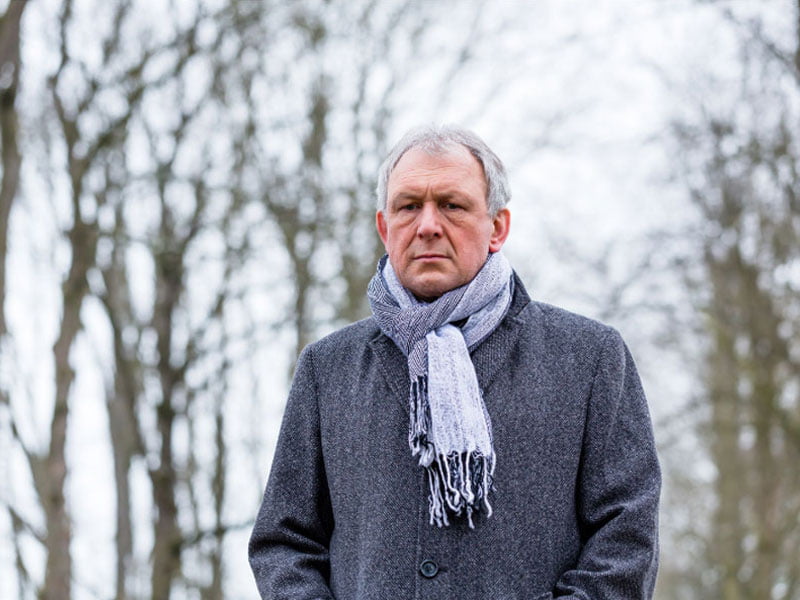Christmas festivities are over, the weather is cold, damp and unfriendly, and the evenings are long and dark.
2022 looms, and you find yourself feeling anxious about what it might hold. Maybe you are even dreading the months that lie ahead.
But … imagine another scenario, one where you feel positive, maybe even excited about what the new year will bring.
Is this possible? Absolutely, and it starts with a small but significant step.
Talk to a mental health professional.
What happens when diagnosed with depression
Things can begin to make sense when we understand depression and can identify with some of the symptoms.
Understanding depression can help you understand why you may not be able to relax, why you are hyperactive day and night, tensed-up, unable to sleep.
If you are deprived of sleep, you may think and act irrationally, view the world at its bleakest, where suicide may be a real possibility.
Deprived of sleep and devoid of energy, you may become short-tempered with everyone. One moment you want the world to go away and then the next, you are terrified of what would happen if your wish was granted.
Take the first step and speak to a professional. You may be prescribed medication that may calm you and help you sleep.
You can also help yourself in surprisingly straightforward ways.
What to take for stress and depression
1. Exercise the body
Start the new year with regular exercise. Thirty minutes is a great stress-buster, helping to lower stress hormones such as cortisol and increase endorphins, chemicals that improve your mood.
You may also sleep more soundly. Gradually your confidence will return, and you will begin to feel more like the competent person you know you can be.
Exercise doesn’t have to mean walking or jogging. Yoga, evidence suggests, can be just as effective in alleviating stress – not only in the body but in the mind.
2. Feed the mind
Programmes such as cognitive behaviour therapy complement yoga, keeping the mind focused on the positive, away from harmful, stress-inducing thoughts.
Positive feelings that can start with simple lifestyle choices can make you feel better about yourself.
3. Change your lifestyle
Cut back on coffee and alcohol. Both are stimulants that can make you feel anxious and restless.
They can also affect your sleep. Everyone has different levels of tolerance. If you start to feel anxious, drink less. The closer to bedtime, the more these stimulants can disrupt your sleep patterns.
Patterns that you can record.
4. Keep a record
Write down your thoughts daily, build a testament to what you are grateful for and focus on those positive thoughts.
At first, you will probably want to keep them private, but they may spur you to connect with those who love you.
5. Talk to those that love you.
Your friends and family know you are struggling and want to help. Talk to them. Gradually you will start to feel a sense of belonging, and your self-worth will come back.
When times get tough, you have a support network ready to help you, and yes, even laugh with you.
6. Laugh with them.
Laughing is probably the last thing you feel like doing this Christmas. It’s impossible, however, to laugh and feel stressed at the same time.
Laughter also relaxes the muscles and reduces tension, just like a simple hug.
7. Hug them.
Simple bodily contact like a hug breaks the tension and gets the adrenalin glands going, reducing the stress hormone cortisol, and releasing positive oxytocin hormones.
8. Breathe deeply.
When you are stressed, your heart is racing, and you breathe in short bursts. Breathe deeply through your nose. Your lungs expand, your stomach lifts, and your heartbeat slows. You calm down.
When calm, you are ready to take control.
9. Take control.
By taking control, you stop procrastinating and constantly reacting to events. Your stress levels will drop as you start working through your to-do lists.
You will begin to feel confident enough to say ‘no’.
10. It’s OK to say ‘NO’.
Saying ‘yes’ all the time can only add to your stress levels, especially if you are already struggling to cope with your workload. Be kind to yourself and start saying ‘No’.
However, do say ‘yes’ to the stories of others.
11. The power of stories.
Advice and tips are great, but there is nothing more powerful than reading the stories of others – people who have suffered like you.
Reading them may help you realise that you aren’t alone. You don’t need to feel ashamed, and your situation isn’t hopeless.
Last Word
It may be a slow and prolonged struggle. The depression that hangs over many of us like a cloud will not disperse magically overnight, but you can win this battle.
Taking these small, simple steps is a great place to start. Why not start with a walk on New Year’s Day?
Here’s to a happy, healthy 2022.
Reviewed by Adil Jawad, Consultant Psychiatrist.







Leave A Comment